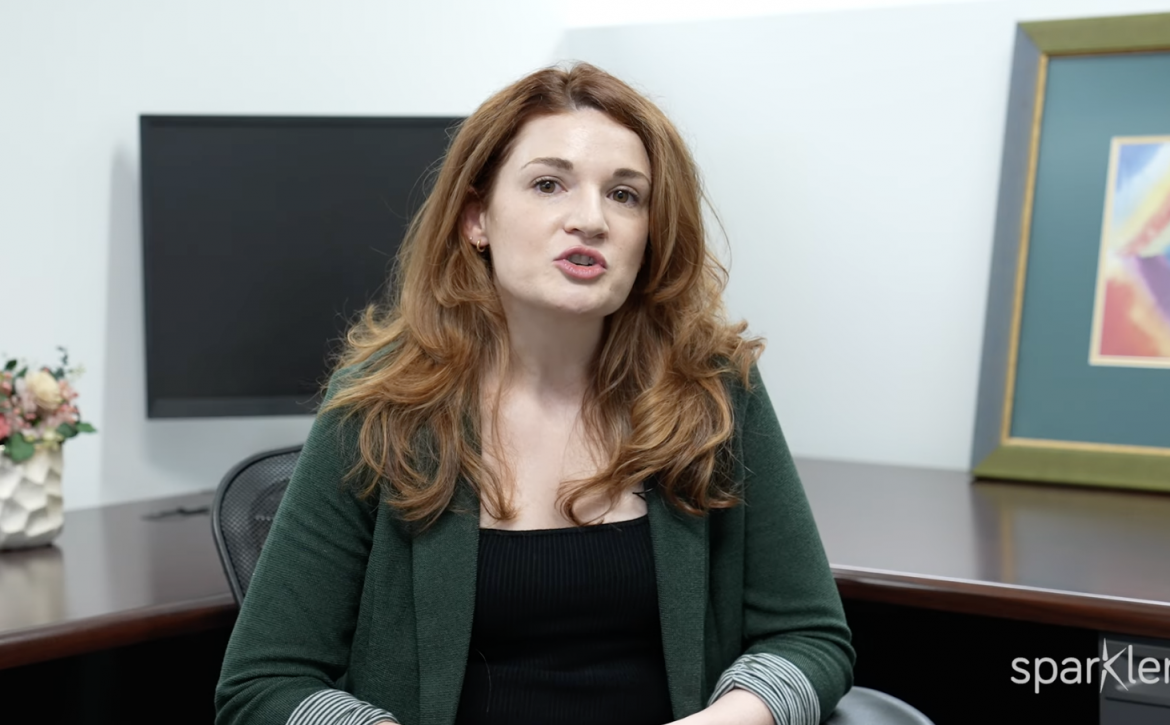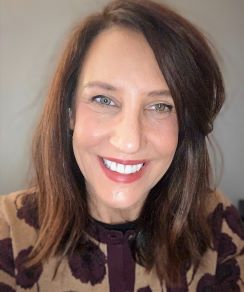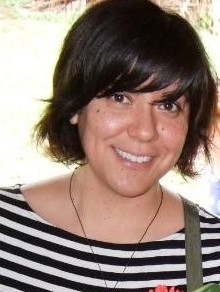Let’s Grow: The Importance of Screening and Follow Up
Sparkler chatted with Kirsten Carlone, the lead care coordinator at 211 Child Development, who is featured in the new video (above) about the importance of developmental screening and following up with families who complete ASQs. Kirsten’s primary role at 211 Child Development is following up with families who use Sparkler. She also provides outreach and training for families and programs across Connecticut.
Why is screening important for families, and why is it important for providers like teachers or pediatricians working with families?
Screening is important because potential delays are not always obvious to parents, teachers, or other providers working with families. Screening helps us identify the areas that could use more support, as well as celebrate the areas that are on track.
How do you support families who have completed an ASQ (Ages & Stages Questionnaire)?
I support families by helping them understand the screening questions and results. I provide information on developmental milestones and can connect families to free programs in Connecticut, like Birth to Three, Preschool Special Education, and Help Me Grow.
What steps do you take after receiving the results?
After a family completes a screening, I review the results and the caregiver’s responses. If the responses indicate a score of monitor or refer, or the caregiver wrote in a specific concern, I reach out to the family by phone to discuss it.
How do you guide families who have concerns?
If, while speaking with the family, concerns are identified, I will support the family in connecting to programs like Birth to Three, Preschool Special Education, or Help Me Grow. I will also share play activities and parenting tips through the Sparkler app so the family can play together while working on the areas of concern.
Can you tell us about the follow-up form and why follow-up is so important?
The follow-up form is important because it helps providers keep track of follow-ups that are due. It gives providers a place to record their recommendations and other matters discussed during follow-up. Filling out the follow-up form also allows Sparkler to track data. Having this data helps us see what recommendations are being made and how families are being supported by their program across the state.
Is the follow-up form similar to the check boxes on the back of the old paper ASQs?
The follow-up form is similar to the ASQ checklist, but it holds a lot more information. The follow-up form allows providers to record more qualitative data and information on the recommendations given to the family. Providers can look back on past recommendations and can make edits if new recommendations are made.
How does the "rescreening" question work on the ASQ follow-up form? Why is that important?
The “rescreening” question on Sparkler’s follow-up form is useful if the child has scored at “monitor” and we want to check in soon on how the child is progressing after we’ve allowed some time (about 6-8 weeks) to let the family practice skills together. When you pick a date in the future, Sparkler knows to prompt the family — when that date arrives — to redo the screening or complete a new ASQ if the child has aged up into the next interval. This can be helpful in tracking a child’s progress, especially when the child is in an age range where the screening intervals are more spread out.
Can you tell us about how families can use the results of the ASQ to find play activities and tips that can help them help their children learn and grow?
Play activities in the Sparkler app all correspond with the areas of development in the ASQ. Families can use their results to find activities by looking at the area of concern. For example, if the score is “monitor” in communication, the family can search for activities labeled “Words” in the app. Families can complete activities and collect “Sparkles” in that area of development to practice skills and prepare for the next screening.
How does the follow-up form help track a child’s progress and needs?
The follow-up form helps track a child’s progress because each form is saved within the dashboard. Providers are able to look back on past screenings and the recommendations that were made. This can be especially helpful when reviewing a new screening and providing new recommendations.
211 is a resource for families and also for programs across Connecticut that need help supporting families. Can you tell us more about that?
Our Care Coordinators are happy to speak with providers to offer guidance and information on the resources available in Connecticut. We often get phone calls and inquiries from providers looking for advice and resources to share with the families they are working with. We also offer training for providers (virtual and in person) and can attend community outreach events. (You can call 1-800-505-7000 to reach a 211 CD Care Coordinator.)
If a Connecticut provider is unfamiliar with some of the free resources available, how can they learn more?
There’s information for families on the Sparkler app and a web page with a lot of useful information that we’ve worked with the team at Sparkler to create. Anyone can call our direct line at 1-800-505-7000 to speak with a Care Coordinator. Our website is also a great resource for providers to learn about available programs and they can request brochures and other materials (for free!). Depending on staff availability, we can provide training on these resources and attend community outreach events.
Learn More About Resources for CT Families With Concerns
Children don’t come with manuals! We all have questions about our children’s development: When will she learn to roll over? When will he learn to talk? What can we do to help her get ready to read? How can I help them make friends?



